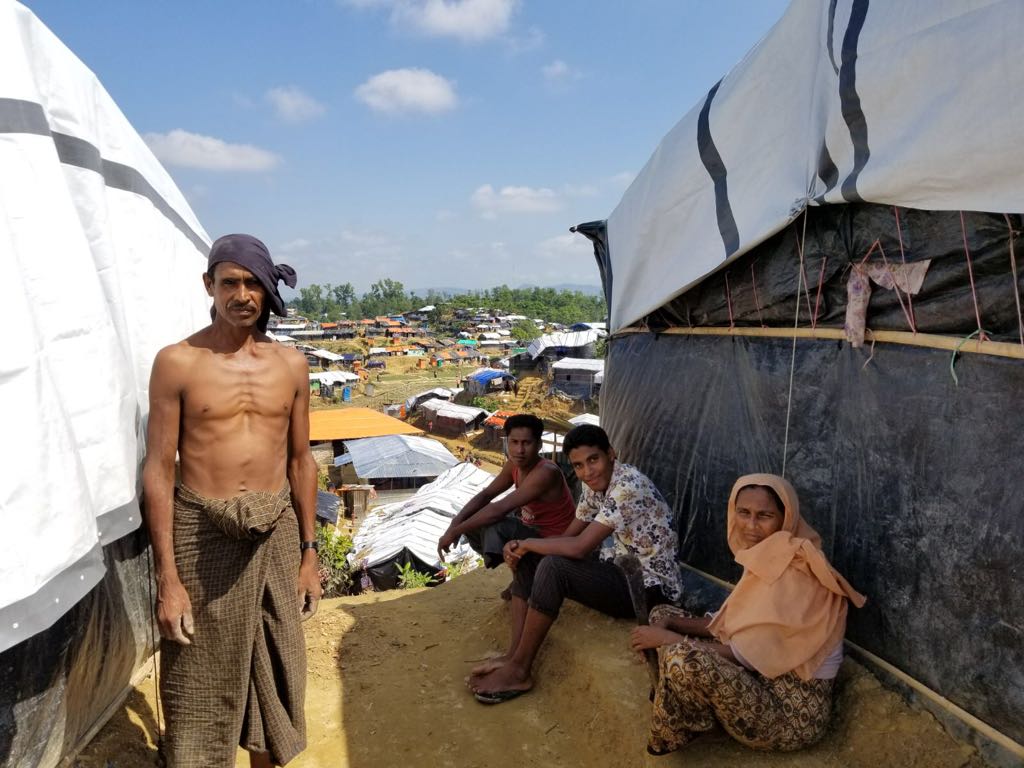3rd Annual My Orphans Fundraising Dinner
By Laura Fawaz, TMO
Dearborn, MI–Last Friday, My Orphans hosted their 3rd Annual Fundraising Dinner in efforts of helping orphans that have been devastated by war-torn disaster areas.
 |
A picture of an orphan decorates a table at the fundraising dinner. Photo by Laura Fawaz. |
After having a full house and turning guests last year, the group moved their event to the Islamic Center of America in Dearborn, MI, and sold over 1,000 seats. My Orphans was established in 2007 as 501C3 non-profit organization, in response to the overwhelming statics such as in Iraq alone, with the war of 2002 resulted in over five million orphans, and over one million widows. In late 2010, My Orphans went national, changing their headquarters from California, to Dearborn, Michigan.
The evening was designed to be “short and sweet,†says Faten Fawaz, who returned earlier this month from visiting the orphanages in Lebanon and Iraq, and is the Project Manager of My Orphans. Consisting of a short speech from Imam Sayed Muhammad Baqir Kashmiri, the religious leader of I.M.A.M. (Imam Mahdi Association of Marjaeya), and is the liaison to Ayatollah Sayed Ali Al Sistani in North America, who spoke on the importance of helping those in need, and it being the Islamic thing to do. Fawaz, who emceed the night, gave background information on My Orphans, as well as updates and progress over the years. But the main attraction of the evening was the moving documentary with real footage of the daily lives of these orphans.
The documentary was real footage taken by a videographer within the community who was so inspired from last year’s fundraising dinner that he traveled to the Middle East to see these orphanages for himself. When visiting the orphanages in Lebanon, Mahmoud Hammoud found that many generous supporters pulled together their resources, financial and otherwise, helping to bring the status from an orphanage to more of a retreat center. This center consists of caretakers, teachers and cooks, all catering to the 60 young girls that stay there. These caretakers were filmed as they were the acting mothers to 60 daughters, making sure that they were well fed, not only with food, but emotionally as well. The emotional well-being was a large necessity in the caretaking of these girls.
Then, the documentary led you to Iraq as Hammoud, the filmmaker, flew into from Beirut to Bagdad. What the audience saw in this documentary, was a country that cannot even begin to repair itself from the decade long war, the massacre of it’s civilians, brutal dictatorship, the change in political power, and inhuman terrorism, and so many children without parents or a home.
In this film, a few of the children were recorded in their daily lives with their home situation, as well as filming all of the children at the orphanage. One of the boys who was filmed lost his father to the war, and is struggling to find food. His mom was able to get tomatoes from someone who she asked on the streets. With that, she fried them and wrapped it in some bread they had so that her children could have some sort of meal. The boy was being interviewed as he ate, and was shown eating two bites of his sandwich, then wrapping it up and putting it in his pocket. When the interviewer asked what he was doing, the boy responded, “I’m saving it for dinner.†A few fried tomatoes to most of us are a topping on a large dish of pasta, a pizza, or something similar. But to this boy, and many others in his same situation, it is a meal that is to be spread throughout the entire day.
Most of these young boys cannot go to the public school because after their fathers died, they went to find any work that they could to bring some kind of food to their family. When they tried to go back to school after missing so many years, they were no longer accepted, as they were now years behind the rest of the students. Thus, the school where the orphaned children attend is their only hope of any form of education. And still, for a few of the children they still cannot go to due to the difficult walk, or, due to the fact that they still must work to be able to eat that day.
The school that is available to them is very small and run down. It cannot hold all of the children so they divide it by boys going to school in the morning, and girls going in the afternoon. There is one room where the kids pray, run around, and later have lunch on the floor. The walls and roof are falling apart, and the grim detail is that the only reason why they have been able to come this far is due to all of the generous donations. Though it is evident that for a country coming from as much turmoil as Iraq is, it is not enough, not to mention the need for medical attention. The children can barely get enough food for a day, let alone any kind of medical awareness.
After this documentary, Fawaz did reach out to anyone who can volunteer their time and services in anyway they can, by traveling to Iraq to help these orphans. Whether it is a doctor going to give check ups, a dentist going to give an oral exam, or a physical education teacher taking soccer balls and finding a small open area for the kids to have some kind of childhood activity. For anyone interested in doing so, please e-mail info@MyOrphans.us. Donations and sponsorship information can be found on https://www.myorphans.us/donate. 99% of donations go directly towards supporting these orphans. The photo gallery from the fundraising event can be found on www.muslimobserver.com.
15-18













2013
1,035 views
views
0
comments